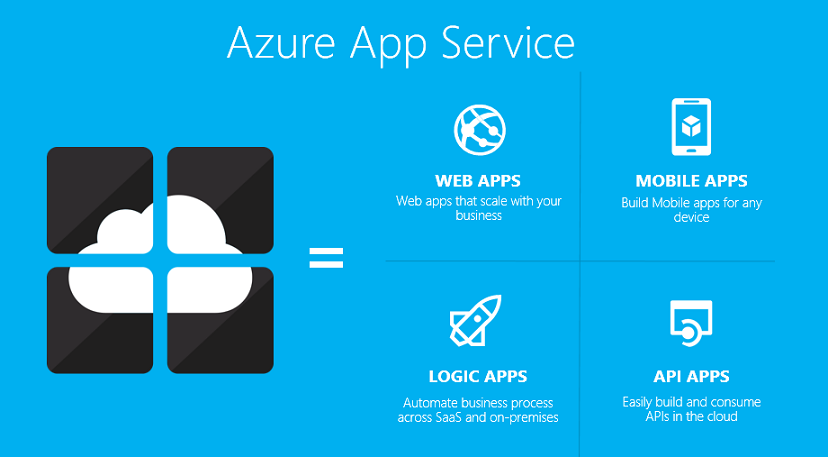Azure App Service: A Managed Platform for Web, Mobile, and API Apps
 Nikila Fernando
Nikila Fernando
Are you a developer looking for a way to build, deploy, and scale web, mobile, and API apps quickly and easily? If so, Azure App Service may be just what you need.
In this article, I will explore Azure App Service, a fully managed Platform as a Service (PaaS) from Microsoft that enables developers to create and deploy a wide range of applications easily.
What is Azure App Service?
Azure App Service is a fully managed cloud platform that enables developers to build, deploy, and scale web, mobile, and API apps. It provides various features and tools to help developers create and deploy applications with minimal effort, including built-in security features, automatic scaling, and integration with other Azure services.
Azure App Service offers a range of benefits for developers, including:
Easy deployment: With Azure App Service, you can deploy your applications to the cloud with just a few clicks. There is no need to worry about setting up servers or configuring infrastructure, as Azure takes care of all of that for you.
Flexible scaling: Azure App Service allows you to scale your applications up or down as needed, so you can handle sudden spikes in traffic or save on costs when usage is low.
Built-in security: Azure App Service includes a number of security features to help protect your applications and data, including SSL certificates, network isolation, and Azure AD integration.
Types of Apps You Can Build with Azure App Service
Azure App Service enables you to build a wide range of applications, including:
Web apps: Web apps are traditional web applications that run in a web browser. Azure App Service provides a variety of tools and features to help you build and deploy web apps quickly and easily, including support for multiple languages and frameworks, such as .NET, Java, PHP, and Node.js.
Mobile apps: Azure App Service allows you to build native and hybrid mobile apps for iOS, Android, and Windows devices. It provides a range of tools and services to help you build, test, and deploy your mobile apps, including integration with Azure Functions and Azure Mobile Apps.
API apps: API apps enable you to build and deploy APIs that can be used by other applications and services. Azure App Service provides a number of features to help you create and manage your APIs, including support for multiple languages and frameworks, such as .NET, Java, and Node.js.
Azure App Service is a powerful and easy-to-use platform for building, deploying, and scaling web, mobile, and API apps. Whether you are a seasoned developer or just getting started, Azure App Service is worth considering for your next project. With its wide range of features and tools, it makes it easy to create and deploy a variety of applications with minimal effort. So, it is a perfect choice for developers who want to focus on building great applications rather than worrying about infrastructure and deployment.
If you are interested in learning more about Azure App Service and getting hands-on experience with the platform, stay tuned for the next article in this series. I will provide a step-by-step guide on how to use Azure App Service to build and deploy a web application, complete with code examples and best practices.
Thank you for reading! I hope you found this introduction to Azure App Service helpful and informative.
Subscribe to my newsletter
Read articles from Nikila Fernando directly inside your inbox. Subscribe to the newsletter, and don't miss out.
Written by

Nikila Fernando
Nikila Fernando
I am a Third -year Computer Science student at NSBM Green University, Sri Lanka. Being a technology enthusiast. I am passionate about learning new technologies and am eager to learn and adapt to different environments. As a curious Computer Science Engineer and a passionate DevOps practitioner, I am always looking for new ways to develop my abilities and broaden my domain. I can work well as an individual or as part of a team to achieve the duties assigned to me.